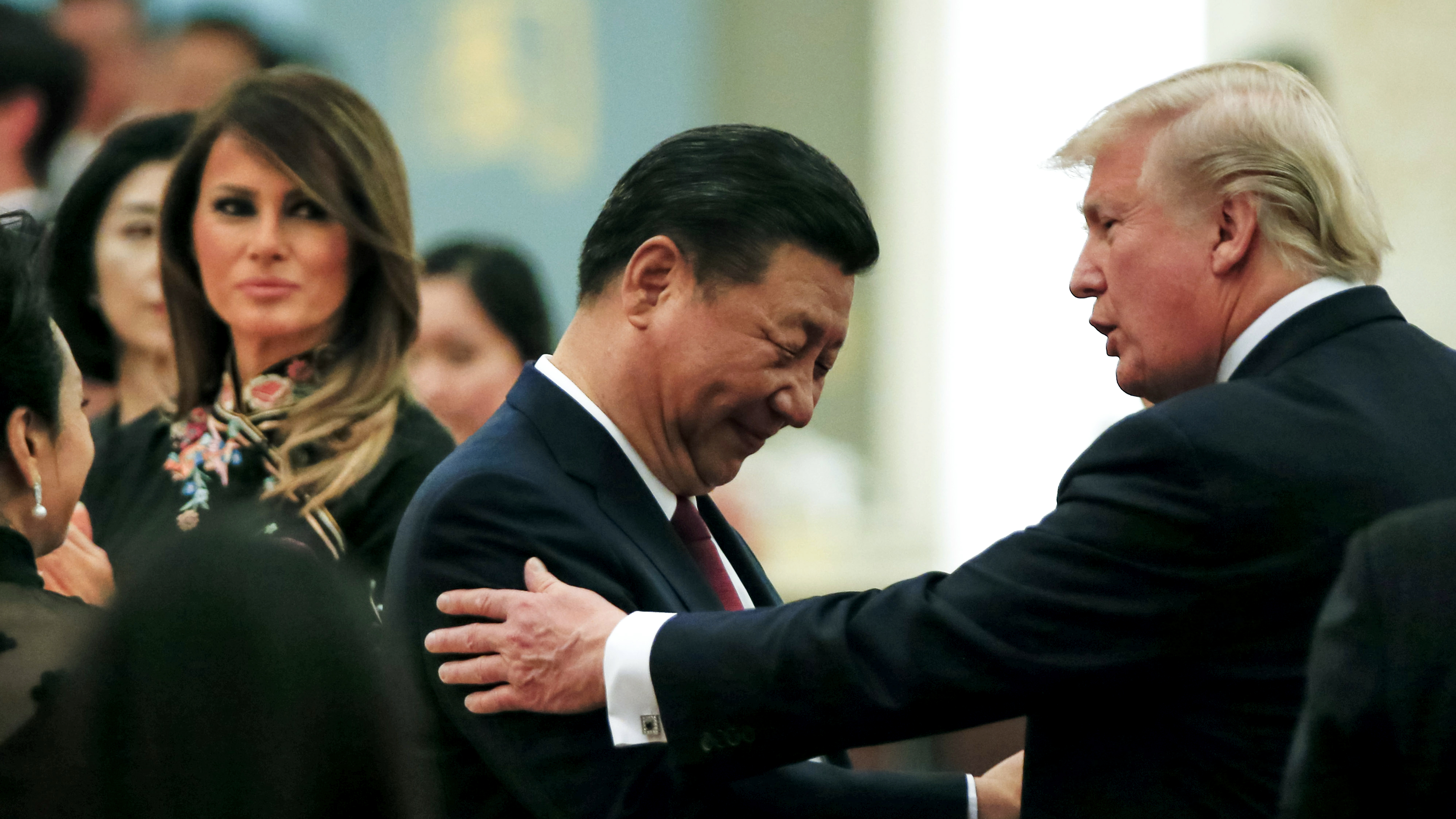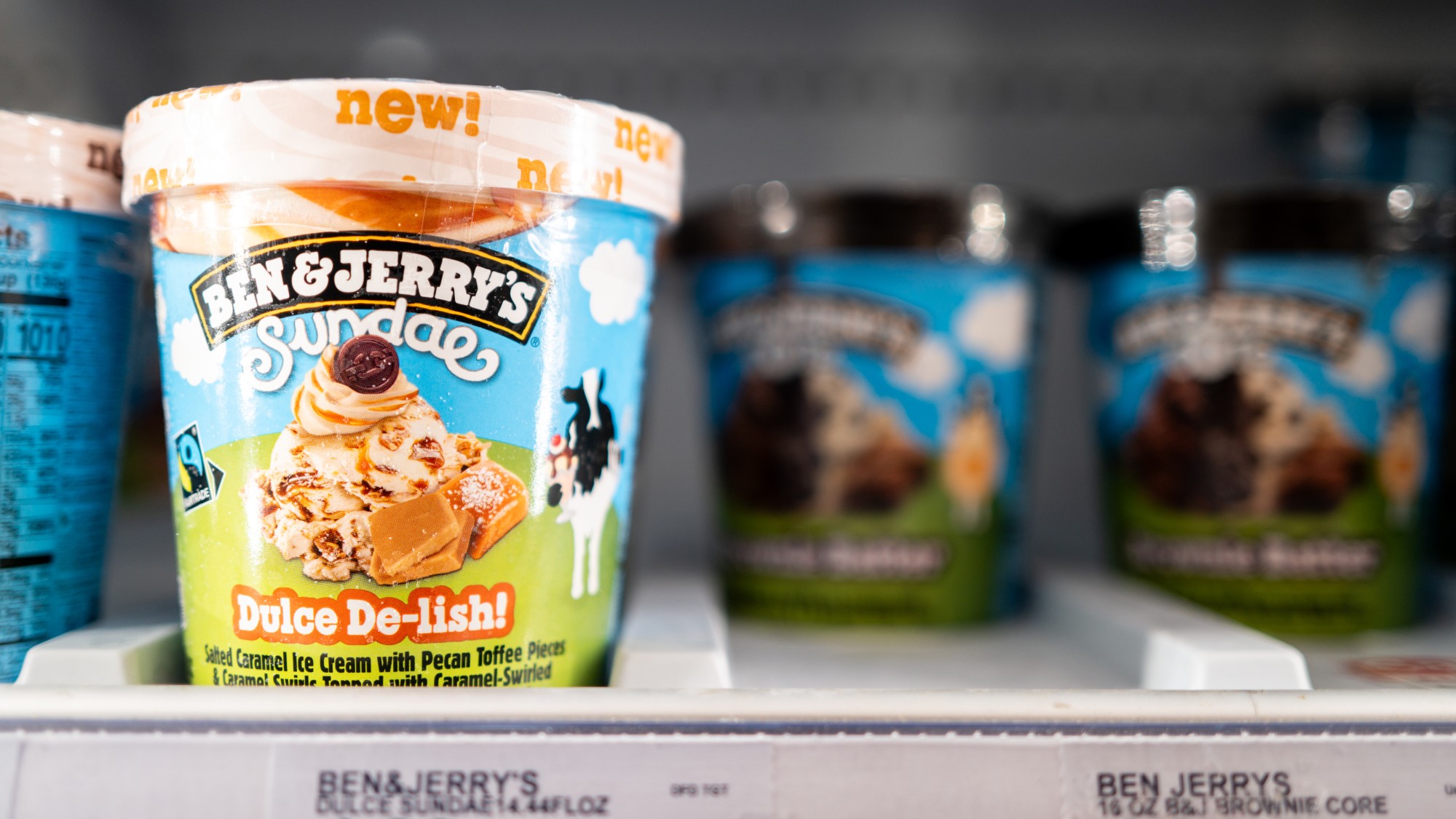Trade war escalates as US and China impose new tariffs
Beijing says Washington ‘acting like a school bully’ with latest levies

A free daily email with the biggest news stories of the day – and the best features from TheWeek.com
You are now subscribed
Your newsletter sign-up was successful
Washington has levied fresh tariffs on $112bn (£92bn) of Chinese imported goods such as speakers, food, shoes and nappies.
The move marks the opening phase of President Donald Trump's latest pledge to place 15% duties on $300bn of Chinese imports by the end of the year.
In what the BBC describes as a “sharp escalation in the bruising trade war,” Trump's move has been met by Beijing's levy of 5% on US crude oil.
The Week
Escape your echo chamber. Get the facts behind the news, plus analysis from multiple perspectives.

Sign up for The Week's Free Newsletters
From our morning news briefing to a weekly Good News Newsletter, get the best of The Week delivered directly to your inbox.
From our morning news briefing to a weekly Good News Newsletter, get the best of The Week delivered directly to your inbox.
China, which has imposed additional tariffs on some of the US goods on a $75bn target list, told Washington to stop acting like a “bully” as the two countries’ fresh tariffs came into force yesterday.
The state media Xinhua news agency said: “The United States should learn how to behave like a responsible global power and stop acting as a ‘school bully’.
“As the world's only superpower, it needs to shoulder its due responsibility, and join other countries in making this world a better and more prosperous place. Only then can America become great again.”
Retailers in the US retailers say they will be forced to pass on the cost of the fresh tariffs to consumers. The president of the American Apparel and Footwear Association, Rick Helfenbein, describes Trump’s latest tariffs as like “punishing your daughter for something your son did. It makes no sense”.
A free daily email with the biggest news stories of the day – and the best features from TheWeek.com
Australian market strategist, Greg McKenna, told The Guardian the tariffs come at a sensitive time for the US economy.
“All the while the tariffs are actually being imposed and the global growth, earnings, and interest rate cycles are pointing down again,” he said.
“On top of that, the inverted US yield curve suggests to many that at best the US economy is slowing materially and at worst that the recession count down has begun.”
-
 The ‘ravenous’ demand for Cornish minerals
The ‘ravenous’ demand for Cornish mineralsUnder the Radar Growing need for critical minerals to power tech has intensified ‘appetite’ for lithium, which could be a ‘huge boon’ for local economy
-
 Why are election experts taking Trump’s midterm threats seriously?
Why are election experts taking Trump’s midterm threats seriously?IN THE SPOTLIGHT As the president muses about polling place deployments and a centralized electoral system aimed at one-party control, lawmakers are taking this administration at its word
-
 ‘Restaurateurs have become millionaires’
‘Restaurateurs have become millionaires’Instant Opinion Opinion, comment and editorials of the day
-
 Currencies: Why Trump wants a weak dollar
Currencies: Why Trump wants a weak dollarFeature The dollar has fallen 12% since Trump took office
-
 TikTok: New owners, same risks
TikTok: New owners, same risksFeature What are Larry Ellison’s plans for TikTok US?
-
 Trump wants a weaker dollar, but economists aren’t so sure
Trump wants a weaker dollar, but economists aren’t so sureTalking Points A weaker dollar can make imports more expensive but also boost gold
-
 Leadership: A conspicuous silence from CEOs
Leadership: A conspicuous silence from CEOsFeature CEOs were more vocal during Trump’s first term
-
 The end for central bank independence?
The end for central bank independence?The Explainer Trump’s war on the US Federal Reserve comes at a moment of global weakening in central bank authority
-
 Can Trump make single-family homes affordable by banning big investors?
Can Trump make single-family homes affordable by banning big investors?Talking Points Wall Street takes the blame
-
 Phish food for thought: Ben & Jerry’s political turmoil
Phish food for thought: Ben & Jerry’s political turmoilIn the Spotlight War of words over brand activism threatens to ‘overshadow’ the big ice cream deal
-
 What a rising gold price says about the global economy
What a rising gold price says about the global economyThe Explainer Institutions, central banks and speculators drive record surge amid ‘loss of trust’ in bond markets and US dollar